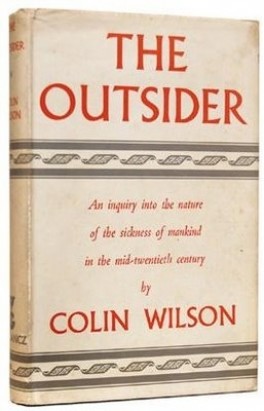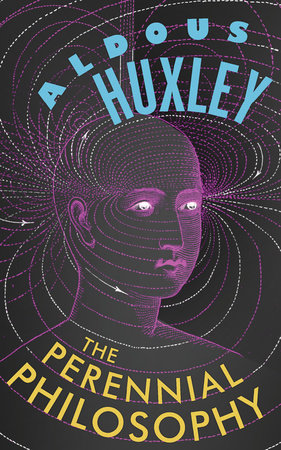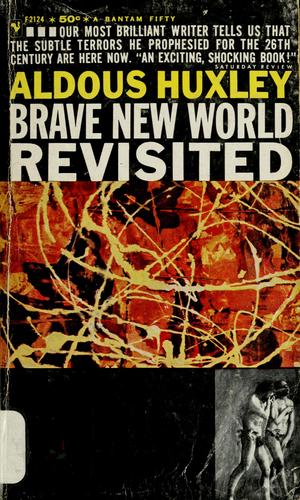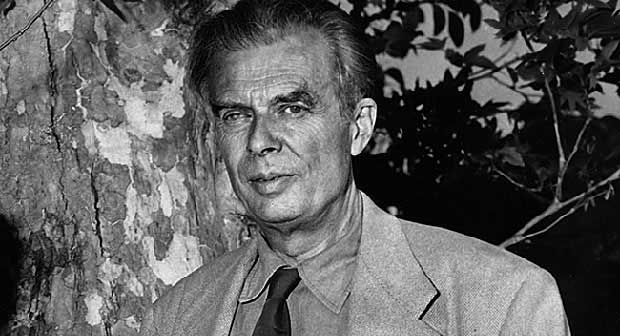 Number 58
Number 58
In this issue:
- Where do we go from here?
- Protection racket
- Exposing the lies
- The Outsider: an interview with Colin Wilson
- Aldous Huxley: an orgrad inspiration
- Acorninfo

These are not easy times in which to be alive if, like us, you cherish freedom and truth.
The last few months have seen us dragged into a nightmarish totalitarian world.
No sooner had “lockdown” been lifted, than masks were imposed. The spectre of a compulsory “vaccine” hovers darkly on the horizon.
All this symbolism of submission, of craven conformism and dehumanised obedience, would be hard to take at the best of times.
But when all of this naked authoritarianism is justified by blatant lies, the situation becomes still more outlandlish.
The “science” behind this medical strategy of tension is so flimsy that one would imagine that all but the dullest of TV-addicted sofa spuds would see right through it.
But, for many, believing the official version seems to have become an article of faith, a central part of their initiation into the sinister “new normal”.
In order for this psychological surrender to authority to be effective, maybe the message had to be obviously false, in the same way that Winston Smith’s torturer in Nineteen Eighty-Four is obviously holding up four fingers rather than five.
What is important for our rulers is that obedient goodthinking citizens believe anything they are told, no matter how absurd.
A further twist of the knife has come from the way that people we assumed we knew, people we imagined shared our basic ideals, have turned out to be something else.
Liberty-loving rebels, long-term opponents of the capitalist system, have suddenly become authoritarian robots, mindlessly repeating the lies and demands of the system.
Worse still, they turn on those of us who have remained consistent in our principles and accuse us of having somehow drifted into unacceptable political territory!
It comes as no comfort to have seen much of this coming, whether in the shape of the increasing authoritarianism of the neoliberal system or the dangerous narrowing of political thinking on the left.

In truth, the scale and speed of what has happened has left us gasping for breath.
Where do we go from here?
We can all, of course, keep on resisting the dictatorship in hundreds of small ways, most importantly by sharing our views and analysis with others in the virtual and real worlds.
But we can also start thinking about what our long-term resistance is going to look like, what kind of movement might emerge to fight the new white-coated fascism and the Fourth Industrial Repression it has unleashed on us.
In thinking about this future movement, we can all help to create and shape it.
To this effect, we invite Acorn readers to share their thoughts with us, not so much in the form of articles for publication (though we also welcome those!), as in an informal way.
Our email address is winteroak(at)greenmail.net and we look forward to hearing from you soon.

Protecting the environment has surely got to be A Good Thing.
Creating “protected areas” for nature in various parts of the world might therefore seem to be a positive move.
However, when these areas are being promoted by the same capitalist system which brought nature to her knees in the first place, the alarm lights start flashing!
“Protected Areas” are in fact one aspect of the global capitalist scam being sold to us under the label of the ‘New Deal for Nature’.
Because, in typical capitalist style, this scam has been wrapped up in shiny green packaging and promoted by the well-known WWF, the New Deal for Nature initially attracted little opposition.
But in recent weeks, thanks to the truth-spreading efforts of the No Deal for Nature campaign and its supporters, support has been slipping away.
The human rights charity Survival International has been doing a great job of blowing the whistle on what is nothing other than a new phase of industrial capitalist imperialism, aiming to displace indigenous peoples and further exploit Mother Nature for the profit of the usual tiny and greedy elite.
Warns Survival director Stephen Corry: “The latest idea to be heavily promoted by big conservation NGOs is doubling the world’s so-called ‘Protected Areas’ (PAs) so that they cover thirty percent of the globe’s lands and oceans.
“This is now their main rallying cry and response to two of the world’s biggest problems — climate chaos and loss of biodiversity.
“It’s a marketing gimmick designed to funnel even more money to those who have for decades demonstrated their failure to mitigate either climate change or biodiversity loss.
“Many PAs aren’t really protected at all. They include industrial exploitation — mining, logging, plantations, trophy hunting concessions, or extensive, usually high-end, tourist infrastructure.
“The locals are thrown out as the land is grabbed by one or other industry, partnering with one or other big conservation NGO.
“It’s a new colonialism, the world’s biggest land grab, supposedly ‘green’ and supposedly to save the world — a really big lie. As Odette, a Baka woman from Congo, says of such imposed conservation projects which don’t work, ‘We’ve had enough of this talk of ‘boundaries’ in the forest. The forest is ours’.”
The alert is also being sounded via the World Rainforest Movement, notably in a statement entitled “Protected Areas feed corporate profiting and destruction”.
Click to access Boletin-249_ENG.pdf
This explains: “PAs are heavily promoted by conservation NGOs, governments and corporations. The NGOs want as much money as possible to maintain their dominance over more and more of the world’s surface, which they see as threatened by locals.
“Governments hate self-sufficient people who are difficult to tax and control and who tend to be sceptical about the state’s claim to override the community. Corporations look for more consumers, and to extract more raw materials, often from ‘wilderness’. They need places where they can claim to ‘offset’ carbon, to greenwash their image as much as possible.
“The result is that billions of dollars of taxpayers’ money are funnelled into conservation areas that ignore all checks about upholding human rights, which are routinely violated there. Most such projects are run by NGOs, profit-making private companies, or both. They are established in collaboration with logging, extractive industries, trophy hunting, tourism concessions, and agribusiness.
“They take the land which has long sustained a way of life for local people and refashioned it to churn out profit for a few outsiders. In some areas, there is a clear overlap of, for example, mining concessions with protected areas.
“Conservation NGOs are, at least in part, controlled by the corporate bosses who sit on their boards, partner with, and fund them, why expect anything different?”
We urge readers to support the No Deal for Nature campaign in any way they can.
Their site is here and they are on Twitter here, where they work closely with Boycott WWF.
The New Deal For Nature was due to be finalised as part of the post-2020 biodiversity framework at the Convention on Biological Diversity (CBD) conference to be held China in October 2020.
Thanks to the resistance, however, this event has now been postponed to May 17-30, 2021, according to a press release from the Convention on Biological Diversity on July 15.
An international day of action against the New Deal for Nature is being mooted for this autumn – we are happy to help put people and groups in touch with each other to ensure this happens.


As English speakers, we have access to a wide range of material to inform our analysis of the Coronavirus situation.
But this privilege sometimes allows us to forget the important contributions to the discussion made in other languages.
We are grateful to the friends who have shared with us their translations of several German-language articles, which we have made available via this site.
The first document calls for an immediate end to all Corona measures and a committee of inquiry to uncover all errors and deception.
It looks at why masks are harmful, useless and degrading and why all “protective measures” were – and are – senseless from the outset.
“The lockdown has more dead people on its conscience than Covid-19!”, it adds.
 It cites the famous 80-page evaluation of the Corona measures by Oberregierungsrat K., deputy head of the department for crisis management (critical infrastructure protection) in the Federal Ministry of the Interior: “The observable effects and impacts of Covid19 do not provide sufficient evidence (solid evidence) that it is more than a false alarm in terms of health effects on society as a whole”.
It cites the famous 80-page evaluation of the Corona measures by Oberregierungsrat K., deputy head of the department for crisis management (critical infrastructure protection) in the Federal Ministry of the Interior: “The observable effects and impacts of Covid19 do not provide sufficient evidence (solid evidence) that it is more than a false alarm in terms of health effects on society as a whole”.
And it includes this nice line: “This killer virus is very special and is mainly transmitted by television, radio and newspapers”.
‘The Science Fraud by Prof. Christian Drosten‘ focuses on the high-profile German virologist and also assesses his UK counterpart: “Neil Ferguson is the ghost in the machine. The machine is the World Health Organization and the CDC. The man behind the ghost is Bill Gates”.
This analysis by Dr. Stefan Lanka also takes Prof Dorsten to task. “Neither he, nor the virologists of the CCDC, nor others have demonstrably carried out these necessary control experiments to date and if they have, they have not published them… The moment this attempt is carried out and published, the Corona crisis is immediately over”.
Finally, this July 4 article, originally from Diamenten magazine (“for freedom and a self-determined life”), says that leading Corona researchers admit that they have no scientific proof of the existence of a specific virus. “Rumours and lies have created a pandemic, although there was no evidence!”
4. The Outsider: an interview with Colin Wilson
“For the Outsider, the world into which he has been born is always a world without values. Compared to his own appetite for a purpose and a direction, the way most men live is not living at all; it is drifting. This is the Outsider’s wretchedness, for all men have a herd instinct that leads them to believe that what the majority does must be right. Unless he can evolve a set of values that will correspond to his own higher intensity of purpose, he may as well throw himself under a bus, for he will always be an outcast and a misfit”. So wrote Colin Wilson in his important and best-selling 1956 book The Outsider. Wilson died seven years ago, but not until Acorn contributor Jan Goodey had secured an interview with him, which we are pleased to feature here.

When interviewed in 2001, original angry young man and all-round iconoclast Colin Wilson had lost none of the bite that made his name back in the Fifties and Sixties.
A simple throwaway comment on Aleister Crowley was seized upon with acerbic relish, “He was a shit and one of the only people I wrote about who I would not have wanted to meet.”
In his seventies then, Wilson was happily ensconced in Cornwall which became his haven when the media glare became all too much back in the days when the papers would call him ‘a genius’ and run a story on him being spotted outside a cinema, all in the same day. “Well who the fuck cares” his comment relating to the latter.
On a day in 1956 Wilson woke up and found himself lauded and a best-seller. His book The Outsider had come out in the same week as John Osbourne’s play Look Back In Anger. The book featured chapters on various writers, including Herman Hesse, outside the mainstream and influenced by great, arcane Eastern mysticism.
 It was counter-cultural to the prevailing philosophies of the time: linguistic analysis, logical positivism and Marxism. For a few weeks they weren’t sure whether to call this new generation of writers Angry Young Men or Outsiders and Wilson was feted by his contemporaries, including Kingsley Amis and Francis Bacon.
It was counter-cultural to the prevailing philosophies of the time: linguistic analysis, logical positivism and Marxism. For a few weeks they weren’t sure whether to call this new generation of writers Angry Young Men or Outsiders and Wilson was feted by his contemporaries, including Kingsley Amis and Francis Bacon.
It was a break for a working class lad who’d never been to university, always been broke, worked in factories and coffee houses and even slept out on Hampstead Heath to save rent. “My ‘success’ itself was an absurd paradox;” he later wrote, “I was being rewarded for telling society how much I detested it.”
The English press’s long-held reputation of building people up to knock ’em down again was something Wilson soon found out about – close quarters. The feeling of destestation could be more than reciprocated.
One of the first to wield the knife was fellow philosopher AJ Ayer who did “a filthy stinking review of The Outsider,” said Wilson. Others followed suit, taken aback that a provincial hick could turn the London literary scene upside down with his first book.
With the Beats espousing stream of consciousness bacchanalia and the Existentialists, alienation, Wilson was neither one nor the other, and eventually sought sanctuary, first in France then Cornwall: “I suppose it’s like this girl Anne Robinson (UK celeb/news journalist) who was initially very highly regarded, but now is attacked by a lot of people maybe because she’s too famous. I went to Paris to meet Camus. He was going to do an introduction to my second book but was then killed in a car crash.”

Wilson saw himself following in the tradition of Sartre and Camus, and took up a position he described as New Existentialism, proceeding from many of their assumptions but rejecting alienation in favour of a life-affirming view: the individual free to forge meaning for him/herself: “Someone once called me our only home grown existentialist. At the time when people like Ayer were saying that questions about the meaning of life were meaningless I was feeling that they’re the only questions worth answering. What the hell are we doing here?”
The answer wasn’t Christianity, although he was tempted by Catholicism until he took instruction and discovered it to be “a lot of shit”. Wilson on Jesus is interesting in itself: “I don’t believe that Jesus died on the Cross for the sin of Adam. We know pretty certainly that Jesus himself didn’t think so, that he was a member of a reformist group. and this was so hated a group by Jews and Romans that he got crucified. He would have been shocked by the notion that he was the Son of God.”
No, the answer for Wilson lay partly in the occult – he believes we are on the verge of an evolutionary leap to a higher stage,- about to come something more than man/woman. In essence a positive outlook and it was in keeping with his view of himself as the first genuine optomistic philosopher in the Western tradition.
And if you ever catch yourself asking from where the New Age interest in all things mystical, springs: “In a word me, I started it all,” said Wilson, ever so slightly mischievious.

Colin Wilson (1931-2013)
(Jan Goodey is a regular contributor to the Ecologist online)
5. Aldous Huxley: an orgrad inspiration
The latest in our series of profiles from the orgrad website.

“Modern technology has led to the concentration of economic and political power”
Aldous Huxley (1894-1963) was a philosopher and writer who consistently opposed the industrial and commercial thinking of Western capitalism.
He is best known for his 1931 novel Brave New World, which depicts a dystopic future society built on American-style consumerism.Writing to his brother Julian in August 1918, Huxley predicted that one of the most deplorable consequences of the First World War would be “the inevitable acceleration of American world domination” and warned repeatedly in the 1920s that “the future of America is the future of the world”. (1)
David Bradshaw writes that the “World State” of Brave New World was clearly conceived “as a satire on the global diffusion of the American way of life”. (2)
Huxley’s future hell does not need the machineries of a violent police state to keep its population under control, because its domination reaches deep inside people’s heads.
As he remarked: “A really efficient totalitarian state would be the one in which the all-powerful executive of political bosses and their army of managers control a population of slaves who do not have to be coerced, because they love their servitude.
“To make them love it is the task assigned, in present-day totalitarian states, to ministries of propaganda, newspaper editors and school teachers”. (3)
In Huxley’s dystopia, as in our own industrial capitalist world, everything is judged according to its contribution to “economic growth”.
He explains in the novel that at a previous stage of the Brave New World the lower castes of society had been conditioned to like wild flowers and nature – for a very specific reason: “The idea was to make them want to be going out into the country at every available opportunity, and to compel them to consume transport”. (4)
But this conditioning had been dropped because landscapes and flowers lay outside the all-important economy: “A love of nature keeps no factories busy. It was decided to abolish the love of nature, at any rate among the lower classes”. (5)
The same productivist mentality inspires the imaginary society’s love of games and sports involving lots of complicated equipment.
Reflects one character: “Strange to think that even in Our Ford’s day most games were played without more apparatus than a ball or two and a few sticks and perhaps a bit of netting. Imagine the folly of allowing people to play elaborate games which do nothing whatever to increase consumption. It’s madness”. (6)
The consumer impulse is etched into each new generation’s minds by recorded voices played over and over again to children in their nurseries: “The voices were adapting future demands to future industrial supply. ‘I do love flying,’ they whispered. ‘ I do love flying. I do love having new clothes’… ‘But old clothes are beastly,’ continued the untiring whisper. ‘We always throw away old clothes. Ending is better than mending, ending is better than mending, ending is better…’” (7)
This brainwashing takes on a more obviously ideological shape for teenagers, as revealed when the character Lenina insists that “progress is lovely, isn’t it?” and Bernard remarks wearliy: “Five hundred repetitions once a week from thirteen to seventeen”. (8)
For most people in contemporary Western capitalist society, even those who consider themselves dissidents, it seems likewise to be a deeply conditioned self-evident truth that “progress is lovely”.
Those same people often share another of the basic convictions of the Brave New World: that there is no underlying human nature which could allow us to develop freely without the lifelong tight control of authority.
The character Mustapha Mond declares: “As if one believed anything by instinct! One believes things because one has been conditioned to believe them”. (9)
Although Huxley’s dystopia is often contrasted with the one put forward by George Orwell in Nineteen Eighty-Four, deep-down they are not as different as all that – and a hatred of “oldthink” is common to both nightmare regimes.
Huxley imagines a “campaign against the Past” that had involved “the closing of museums, the blowing up of historical monuments (luckily most of them had already been destroyed during the Nine Years’ War); by the suppression of all books published before AF. 150”. (10) The Brave New World, like the Western industrial-capitalist society which it mocks, is generally opposed to too much thinking and reading. After all: “You can’t consume much if you sit still and read books”. (11)
Books and ideas are regarded as particularly dangerous if they are “old” – that is to say, if they come from an intellectual world beyond the narrow bubble of its own cretinous consumer-conformism.
At one point in the novel, a leader of this society is asked why the work of William Shakespeare has been banned.“The Controller shrugged his shoulders. ‘Because it’s old; that’s the chief reason. We haven’t any use for old things here’. ‘Even when they’re beautiful?’. ‘Particularly when they’re beautiful. Beauty’s attractive, and we don’t want people to be attracted by old things. We want them to like the new ones’”. (12)
Huxley went on to deepen his anti-Western, anti-capitalist philosophy by exploring the “old” philosophies cast aside by the modern world. At the end of the Second World War he explicitly identified himself with the Perennialist movement which had been formed by René Guénon, Ananda Coomaraswamy, Frithjof Schuon and others.
The title of his 1945 work The Perennial Philosophy made this clear enough, and Huxley listed no fewer than three books by Guénon in his bibliography.
As well as exploring the roots of this philosophy, particularly in the East, Huxley applied its ethos to the modern world around him and, unsurprisingly, found that contemporary “wisdom” represented pretty much the opposite of all that is considered of value by the inherited wisdom of humankind.
The cult of technology came under specific attack: “Technological idolatry is the religion whose doctrines are promulgated, explicitly or by implication, in the advertisement pages of our newspapers and magazines – the source, we may add parenthetically, from which millions of men, women and children in the capitalist countries derive their working philosophy of life…
“So whole-hearted is the modern faith in technological idols that (despite all the lessons of mechanized warfare) it is impossible to discover in the popular thinking of our time any trace of the ancient and profoundly realistic doctrine of hubris and inevitable nemesis.
“There is a very general belief that, where gadgets are concerned, we can get something for nothing – can enjoy all the advantages of an elaborate, top-heavy and constantly advancing technology without having to pay for them by any compensating disadvantages”. (13)
For Huxley, as for the tradition he espoused, there was no essential difference between the everyday life of the human being and the cultural or spiritual atmosphere in which he or she lives. He could see the lack of spirituality in the contemporary world not simply in terms of an abstract over-view, but on an individual level: “The industrial worker at his fool-proof and grace-proof machine does his job in a man-made universe of punctual automata – a universe that lies entirely beyond the pale of Tao on any level, brutal, human or spiritual”. (14)
Huxley urged his readers to turn their backs on the empty folly of modern life and reconnect with a tradition that would be our natural birthright, were it not hidden away from us by those who fear its force: “The reign of violence will never come to an end until, first, most human beings accept the same, true, philosophy of life; until, second, this Perennial Philosophy is recognized as the highest factor common to all the world religions”. (15)
Huxley continued his philosophical assault on industrial civilization in a follow-up commentary on Brave New World published in 1959.In Brave New World Revisited, he highlighted the dire consequences of continuing on our current course of endless multiplication and economic “growth”, with the spiralling levels of population required to make this possible.
He warned that “this fantastically rapid doubling of our numbers will be taking place on a planet whose most desirable and productive areas are already densely populated, whose soils are being eroded by the frantic efforts of bad farmers to raise more food, and whose easily available mineral capital is being squandered with the reckless extravagance of a drunken sailor getting rid of his accumulated pay”. (16)
Huxley pointed out that our apparently democratic societies were in fact ruled by a “Power Elite” (17) – “modern technology has led to the concentration of economic and political power”. (18)
He also explained how the apparent physical liberty of the individual in contemporary society could be an illusion. Not only were people fooled into accepting their enslavement, but the meaning of the word “freedom” was twisted so far that it came to mean that same enslavement.
Huxley wrote: “It is perfectly possible for a man to be out of prison, and yet not free – to be under no physical constraint and yet to be a psychological captive, compelled to think, feel and act as the representatives of the national state, or of some private interest within the nation, wants him to think, feel and act… The victim of mind-manipulation does not know that he is a victim. To him, the walls of his prison are invisible, and he believes himself to be free”. (19)
He warned of a possible future in which “democracy” and “freedom” would remain the catchwords of the status quo, but in which at the same time “the ruling oligarchy and its highly trained élite of soldiers, policemen, thought-manufacturers and mind-manipulators will quietly run the show as they see fit”. (20)
To prevent this happening, Huxley suggested we should “break up modern society’s vast, machine-like collectives into self-governing, voluntarily co-operating groups, capable of functioning outside the bureaucratic systems of Big Business and Big Government”. (21)
Looking back, in 1946, on his best-known novel, he said if he were to write it again he would provide the protagonists with another choice of society: “In this community economics would be decentralist and Henry-Georgian, politics Kropotkinesque and co-operative.
“Science and technology would be used as though, like the Sabbath, they had been made for man, not (as at present and still more in the Brave New World) as though man were to be adapted and enslaved to them”. (22)
Video link: Illustrated summary of Huxley’s Brave New World.

1. David Bradshaw, ‘Introduction’, Aldous Huxley, Brave New World (London: Flamingo, 1994).
2. Ibid.
3. Aldous Huxley, 1946 Foreword, Brave New World.
4. Huxley, Brave New World, p. 19.
5. Ibid.
6. Huxley, Brave New World, p. 26.
7. Huxley, Brave New World, p. 43.
8. Huxley, Brave New World, p. 50.
9. Huxley, Brave New World, p. 214.
10. Huxley, Brave New World, p. 45.
11. Huxley, Brave New World, p. 44.
12. Huxley, Brave New World, pp. 199-200.
13. Aldous Huxley, The Perennial Philosophy (London: Chatto & Windus, 1980), p. 288.
14. Huxley, The Perennial Philosophy, p. 197.
15. Huxley, The Perennial Philosophy, p. 229.
16. Aldous Huxley, Brave New World Revisited (London: Chatto & Windus, 1959), p. 17.
17. Huxley, Brave New World Revisited, p. 34.
18. Huxley, Brave New World Revisited, p. 35.
19. Huxley, Brave New World Revisited, p. 154.
20. Huxley, Brave New World Revisited, p. 156.
21. Huxley, Brave New World Revisited, p. 159.
22. Huxley, 1946 Foreword, Brave New World.

“Confronted with the accelerated totalitarianisation of the UK being implemented under a de facto State of Emergency, we have chosen to listen to the lies of the Government and its media telling us exactly what to do and for how long, rather than hear a truth on which we will have to think and act for ourselves”. So writes Simon Elmer of Architects for Social Housing in a recent article in his excellent series on the Coronavirus situation. He warns that we are entering “a Britain of fully privatised public services and even greater economic and social inequality in a population ruled by emergency legislation, managed by the surveillance state and governed under a permanent state of exception”.

* * *
Issue 10 of UK anarcho-zine DIY Culture is now online, with the theme of ‘the anarchist revolution – then and now’. Articles include ‘A Study of the Revolution in Spain, 1936-1937’ by Stuart Christie, ‘Anarchy From The Ruins’ by Paul Cudenec and ‘This Is Anarchy – Eight Ways the Black Lives Matter and Justice for George Floyd Uprisings Reflect Anarchist Ideas in Action’.

* * *
Journalist Peter Hitchens continues to put most liberals and leftists to shame with his defiance of Covid-1984 totalitarianism. In an article in Standpoint mag, he insists: “The freedom to leave your house when you wish to and go where you will is not a civil liberty or a political liberty. It is part of being a free man or woman”. And writing about masks, he adds: “The truth is that the muzzle policy is all about power and fear. The Government began its wild, disproportionate shutdown of the country by spreading fear of a devastating plague that would destroy the NHS and kill untold thousands. Now, as many people find that Covid-19 is, in fact, nothing of the kind, new ways have to be found to keep up the alarm levels”.

* * *
“It is a fact that techniques of manipulation are part and parcel of contemporary liberal democracies,” writes Dr Piers Robinson. “Although such persuasion activities can involve consensual techniques, they also frequently include less consensual techniques, involving forms of deception, incentivization and coercion”.

* * *
The call has gone out to physically oppose the EU-China Summit being held in Leipzig in September. Says an online statement: “More than anything else, the EU-China Summit means a further escalation of the top-down struggle. Poverty and prosperity are to be further redistributed in favour of the economy and ruling elites. We will not stand idly by and we will attack and fight the summit to the best of our ability. Despite short preparation time, despite the Corona pandemic and all the narrowness it brings with it: We call on all of you to come to Leipzig from September 13th to 15th and attack the summit with us! No rest for the rulers – not here in Leipzig and not elsewhere! No to the EU-China Summit!”

* * *
A rally against the World Health Organisation is being held in London on Wednesday July 22. Meet 12.30pm at St James park tube for a protest at the Bill & Melinda Gates Foundation’s London office in Victoria Street from 1pm. StandUpX is also staging a protest in the UK capital on Saturday August 1, at 2pm, with a rally at Speaker’s Corner, Hyde Park, followed by a march to Trafalgar Square and Parliament Square. For info on these and their regional protests see https://www.standupx.info/

* * *
A useful list of articles about the Covid crisis has been published by our comrades at The South Essex Heckler. Some of them will already be familiar to Acorn readers, but the resource is well worth checking out.

* * *
“The idea that society should suddenly be ‘reimagined’ by a handful of billionaires simply due to a pandemic is the opposite of freedom and self-determination”. This timely warning against the threat of “smart” cities – designed to form a key part of the totalitarian “new normal” – comes from the Liberty Blitzkrieg site in the USA.

* * *
The Gilets Jaunes have been back in the news, after their longstanding uprising against neoliberalism was derailed by the Covid clampdown. A group of them who had been demonstrating in Paris on July 14 bumped into their arch-enemy Emmanuel Macron in the garden of the Tuileries (see video). There followed a heated exchange in which the French president was treated to a rendition of the Yellow Vest anthem On est là (Here we are, here we are, even if Macron doesn’t want it, here we are). Meanwhile, an excellent collection of English-language articles on this historically significant movement can be found here.

* * *
Acorn quote: “The worker’s liberty, so much exalted by the economists, jurists, and bourgeois republicans, is only a theoretical freedom, lacking any means for its possible realization, and consequently it is only a fictitious liberty, an utter falsehood. The truth is that the whole life of the worker is simply a continuous and dismaying succession of terms of serfdom – voluntary from the juridical point of view but compulsory in the economic sense – broken up by momentarily brief interludes of freedom accompanied by starvation; in other words, it is real slavery”.
Mikhail Bakunin

(For many more like this, see the Winter Oak quotes for the day blog)
—–
If you like this bulletin please tell others about it. Subscribe by clicking the “follow” button.
—–
Back Issues
Follow Winter Oak on Twitter at @WinterOakPress
Indian doctors blame the Gates campaign for a devastating non-polio acute flaccid paralysis (NPAFP) epidemic that paralyzed 490,000 children – https://childrenshealthdefense.org/news/government-corruption/gates-globalist-vaccine-agenda-a-win-win-for-pharma-and-mandatory-vaccination/
LikeLike
“There will be, in the next generation or so, a pharmacological method of making people love their servitude, and producing dictatorship without tears, so to speak, producing a kind of painless concentration camp for entire societies, so that people will in fact have their liberties taken away from them, but will rather enjoy it, because they will be distracted from any desire to rebel by propaganda or brainwashing, or brainwashing enhanced by pharmacological methods. And this seems to be the final revolution” ― Aldous Huxley
LikeLike